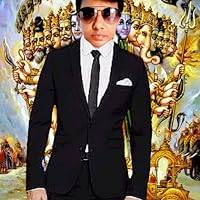Holy Books Quotes
Quotes tagged as "holy-books"
Showing 1-19 of 19

“All teachings are mere references. The true experience is living your own life. Then, even the holiest of words are only words.”
―
―
“The language of light can only be decoded by the heart.”
― Rise Up and Salute the Sun: The Writings of Suzy Kassem
― Rise Up and Salute the Sun: The Writings of Suzy Kassem
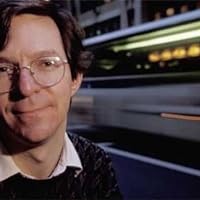
“Each religion makes scores of purportedly factual assertions about everything from the creation of the universe to the afterlife. But on what grounds can believers presume to know that these assertions are true? The reasons they give are various, but the ultimate justification for most religious people’s beliefs is a simple one: we believe what we believe because our holy scriptures say so. But how, then, do we know that our holy scriptures are factually accurate? Because the scriptures themselves say so. Theologians specialize in weaving elaborate webs of verbiage to avoid saying anything quite so bluntly, but this gem of circular reasoning really is the epistemological bottom line on which all 'faith' is grounded. In the words of Pope John Paul II: 'By the authority of his absolute transcendence, God who makes himself known is also the source of the credibility of what he reveals.' It goes without saying that this begs the question of whether the texts at issue really were authored or inspired by God, and on what grounds one knows this. 'Faith' is not in fact a rejection of reason, but simply a lazy acceptance of bad reasons. 'Faith' is the pseudo-justification that some people trot out when they want to make claims without the necessary evidence.
But of course we never apply these lax standards of evidence to the claims made in the other fellow’s holy scriptures: when it comes to religions other than one’s own, religious people are as rational as everyone else. Only our own religion, whatever it may be, seems to merit some special dispensation from the general standards of evidence.
And here, it seems to me, is the crux of the conflict between religion and science. Not the religious rejection of specific scientific theories (be it heliocentrism in the 17th century or evolutionary biology today); over time most religions do find some way to make peace with well-established science. Rather, the scientific worldview and the religious worldview come into conflict over a far more fundamental question: namely, what constitutes evidence.
Science relies on publicly reproducible sense experience (that is, experiments and observations) combined with rational reflection on those empirical observations. Religious people acknowledge the validity of that method, but then claim to be in the possession of additional methods for obtaining reliable knowledge of factual matters — methods that go beyond the mere assessment of empirical evidence — such as intuition, revelation, or the reliance on sacred texts. But the trouble is this: What good reason do we have to believe that such methods work, in the sense of steering us systematically (even if not invariably) towards true beliefs rather than towards false ones? At least in the domains where we have been able to test these methods — astronomy, geology and history, for instance — they have not proven terribly reliable. Why should we expect them to work any better when we apply them to problems that are even more difficult, such as the fundamental nature of the universe?
Last but not least, these non-empirical methods suffer from an insuperable logical problem: What should we do when different people’s intuitions or revelations conflict? How can we know which of the many purportedly sacred texts — whose assertions frequently contradict one another — are in fact sacred?”
―
But of course we never apply these lax standards of evidence to the claims made in the other fellow’s holy scriptures: when it comes to religions other than one’s own, religious people are as rational as everyone else. Only our own religion, whatever it may be, seems to merit some special dispensation from the general standards of evidence.
And here, it seems to me, is the crux of the conflict between religion and science. Not the religious rejection of specific scientific theories (be it heliocentrism in the 17th century or evolutionary biology today); over time most religions do find some way to make peace with well-established science. Rather, the scientific worldview and the religious worldview come into conflict over a far more fundamental question: namely, what constitutes evidence.
Science relies on publicly reproducible sense experience (that is, experiments and observations) combined with rational reflection on those empirical observations. Religious people acknowledge the validity of that method, but then claim to be in the possession of additional methods for obtaining reliable knowledge of factual matters — methods that go beyond the mere assessment of empirical evidence — such as intuition, revelation, or the reliance on sacred texts. But the trouble is this: What good reason do we have to believe that such methods work, in the sense of steering us systematically (even if not invariably) towards true beliefs rather than towards false ones? At least in the domains where we have been able to test these methods — astronomy, geology and history, for instance — they have not proven terribly reliable. Why should we expect them to work any better when we apply them to problems that are even more difficult, such as the fundamental nature of the universe?
Last but not least, these non-empirical methods suffer from an insuperable logical problem: What should we do when different people’s intuitions or revelations conflict? How can we know which of the many purportedly sacred texts — whose assertions frequently contradict one another — are in fact sacred?”
―
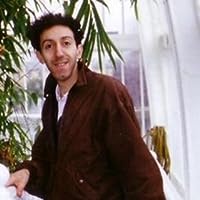
“God has not any Holy Book; but Man has many Holy Book writers! Producing Holy Books is a cosmic crime against the God! God has not spoken yet! He has been silent for billions of years, because He is out of this universe!”
―
―

“We are unimportant creatures in this universe. We are all alone for the moment. Nobody has ever sent us any holy book or whatsoever. To survive in this universe we must first understand that nobody can help us, nobody but ourselves! To be important creatures in this universe means is to be able to shape this universe in such a way that our existence become everlasting!”
―
―
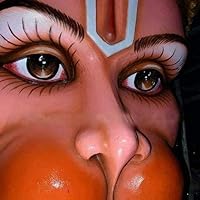
“Human beings are great lawyers. They can find loopholes in any holy book to do what they want to do. Conscience has no loopholes. That's why they always prefer holy books over their conscience.”
―
―

“The best worship is to ease one’s hard life in any way possible; no holy books, no rules, no temples, none is necessary!”
―
―

“The holy books of all religions serve as our pathfinders. The Quran of Islam, the Bible of Christianity, the Gita of Hinduism, Guru Granth Sahib of Sikhism, the Tipitaka of Buddhism, and the Agamas of Jainism are all examples of scriptures that dig deep into the perennial questions that have been plaguing mankind since time immemorial. They try to answer them in their own ways. The great souls and prophets who have pioneered various religious movements in the world have left behind their treasure of wisdom in the form of written words available in those Holy Scriptures.
Not only such scriptures, but also the many non-religious texts such as the ancient epics of Greece, the writings of Confucius and the celebrated tragedies of Shakespeare, all throw light on the unending questions that mankind has been struggling with. We would be deprived of a lot if such a legacy of contributions down the ages is lost sight of. It would have been nice if we could delve deep into the vast ocean of insights presented in each one of this line-up of classics and holy books in our quest for the necessary answers.
It is not that all these scriptures necessarily provide a straight and conclusive answer. Had it been so, the human race would not have been struggling with it even today.”
― The Puzzles of Life
Not only such scriptures, but also the many non-religious texts such as the ancient epics of Greece, the writings of Confucius and the celebrated tragedies of Shakespeare, all throw light on the unending questions that mankind has been struggling with. We would be deprived of a lot if such a legacy of contributions down the ages is lost sight of. It would have been nice if we could delve deep into the vast ocean of insights presented in each one of this line-up of classics and holy books in our quest for the necessary answers.
It is not that all these scriptures necessarily provide a straight and conclusive answer. Had it been so, the human race would not have been struggling with it even today.”
― The Puzzles of Life

“The dictionary is the holy book of the geniuses. It's the only way that you can learn new word(s) daily.”
―
―

“Dear friend, God did not send you any holy book! Why? Because the holy book is the universe itself! The book already existed before humanity existed! Now sit down and try to understand that book!”
―
―

“Every beautiful place is your temple, you can always visit them; every useful book is your holy book, you can always read them; every place you find love is your heaven, you can always go there! Don’t get stuck in the temples, in the so-called holy books and heavens of the religions because life is much richer, much superior and much intelligent than all the religions because life is alive, it is dynamic and it continuously develops itself!”
―
―
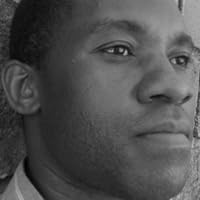
“No holy book is more inspired than the other. They are all inspired according to their gods.”
― Pearls Of Eternity
― Pearls Of Eternity
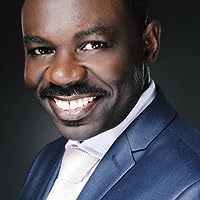
“Kuna mambo yanatokea hapa ulimwenguni ambayo yanafanya nikiri uwepo wa Mungu kwa asilimia kubwa. Wanasayansi wanasema ulimwengu ulianzishwa na mlipuko wa ‘Big Bang’, uliotokea takribani miaka bilioni 14 iliyopita, kutoka katika kitu kidogo zaidi kuliko ncha ya sindano, lakini hawatuambii nini kilisababisha mlipuko huo utokee au hicho kitu kidogo kuliko ncha ya sindano kilitoka au kilikuwa wapi.
Wanaendelea kusema kuwa baada ya ‘Big Bang’ kutakuwepo na ‘Big Crunch’, ambapo ulimwengu utarudia hali yake ya awali ya udogo kuliko ncha ya sindano, na kila kitu kinachoonekana leo ulimwenguni hakitaonekana tena.
Hapo sasa ndipo utata unapokuja. Mlipuko wa ‘Big Bang’ ulipotokea ulimwengu ulilipuka na kusambaa pande zote nne za ulimwengu kwa mwendokasi wa zaidi ya kilometa milioni 2 kwa saa, mpaka hivi leo unavyoonekana na bado unaendelea kusambaa. Kutokana na dhana ya ‘Big Crunch’, wanasayansi wanaamini ulimwengu utapanuka ila baadaye utapungua mwendo na utarudi mwanzo kabisa mahali ulipolipukia.
Lakini mwaka 1995 wanasayansi hao hao waligundua kitu. Ulimwengu – badala ya kupungua mwendo wa kupanuka kama wanasayansi walivyokuwa wakitabiri – sasa unaongeza mwendo, tena kwa mwendokasi ambao haujawahi kutokea.
Hiki ni nini kinachosababisha ulimwengu uongeze mwendokasi kiasi hicho badala ya kuupunguza? Hicho ni nini ambacho ulimwengu unapanukia? Wanasayansi hawana jibu. Wanasingizia kitu kinaitwa ‘dark matter’, maada ambayo haijawahi kuonekana, kwamba ndicho kinachosababisha ulimwengu uongeze mwendokasi kwa kiwango hicho ambacho hakijawahi kutokea; na hicho ambacho ulimwengu unapanukia wanahisi ulimwengu wetu unapanukia katika ulimwengu mwingine, kwa mujibu wa dhana nyingine kabisa iitwayo ‘multiverse’ au ‘meta-universe’.
Kuna kitu kinaitwa ‘Higgs boson’ – chembe ndogo inayosemekana kuhusika na uzito (‘mass’) wa chembe ndogo 16 zilizomo ndani ya atomu, kasoro chembe ya mwanga, iliyopotea mara tu baada ya mlipuko wa ulimwengu wa ‘Big Bang’ miaka bilioni 13.7 iliyopita katika kipindi kilichoitwa ‘epoch’ – ambayo ilianza kutafutwa katika maabara za CERN, Uswisi, toka mwaka 1964, maabara ambazo kazi yake kubwa ni kutengeneza mazingira ya mwanzo kabisa ya mlipuko wa ‘Big Bang’, kusudi wanasayansi waone kama wanaweza kubahatisha kuiona na kuidhibiti hiyo bosoni.
Bosoni itakapopatikana wanasayansi watajua siri ya ‘dark matter’, watajua jinsi ulimwengu unavyofanya kazi na jinsi ulivyoumbwa na jibu la kitendawili cha ‘Standard Model’ litapatikana.
Hiyo ni kazi ngumu. Ndiyo maana ‘Higgs boson’ mwaka 1993 iliitwa ‘The God Particle’. Yaani, wanasayansi wanahisi kuna muujiza wa Kimungu na huenda wasiipate kabisa hiyo bosoni. Wanasema waliipata mwaka 2013. Lakini hiyo waliyoipata bado ina utata.
Kutokana na kushindwa huko kwa sayansi na historia, kutokana na kushindwa kwa sayansi kutengeneza binadamu au mnyama, kutokana na miujiza iliyorekodiwa katika vitabu vitakatifu; naamini, Mungu yupo.”
―
Wanaendelea kusema kuwa baada ya ‘Big Bang’ kutakuwepo na ‘Big Crunch’, ambapo ulimwengu utarudia hali yake ya awali ya udogo kuliko ncha ya sindano, na kila kitu kinachoonekana leo ulimwenguni hakitaonekana tena.
Hapo sasa ndipo utata unapokuja. Mlipuko wa ‘Big Bang’ ulipotokea ulimwengu ulilipuka na kusambaa pande zote nne za ulimwengu kwa mwendokasi wa zaidi ya kilometa milioni 2 kwa saa, mpaka hivi leo unavyoonekana na bado unaendelea kusambaa. Kutokana na dhana ya ‘Big Crunch’, wanasayansi wanaamini ulimwengu utapanuka ila baadaye utapungua mwendo na utarudi mwanzo kabisa mahali ulipolipukia.
Lakini mwaka 1995 wanasayansi hao hao waligundua kitu. Ulimwengu – badala ya kupungua mwendo wa kupanuka kama wanasayansi walivyokuwa wakitabiri – sasa unaongeza mwendo, tena kwa mwendokasi ambao haujawahi kutokea.
Hiki ni nini kinachosababisha ulimwengu uongeze mwendokasi kiasi hicho badala ya kuupunguza? Hicho ni nini ambacho ulimwengu unapanukia? Wanasayansi hawana jibu. Wanasingizia kitu kinaitwa ‘dark matter’, maada ambayo haijawahi kuonekana, kwamba ndicho kinachosababisha ulimwengu uongeze mwendokasi kwa kiwango hicho ambacho hakijawahi kutokea; na hicho ambacho ulimwengu unapanukia wanahisi ulimwengu wetu unapanukia katika ulimwengu mwingine, kwa mujibu wa dhana nyingine kabisa iitwayo ‘multiverse’ au ‘meta-universe’.
Kuna kitu kinaitwa ‘Higgs boson’ – chembe ndogo inayosemekana kuhusika na uzito (‘mass’) wa chembe ndogo 16 zilizomo ndani ya atomu, kasoro chembe ya mwanga, iliyopotea mara tu baada ya mlipuko wa ulimwengu wa ‘Big Bang’ miaka bilioni 13.7 iliyopita katika kipindi kilichoitwa ‘epoch’ – ambayo ilianza kutafutwa katika maabara za CERN, Uswisi, toka mwaka 1964, maabara ambazo kazi yake kubwa ni kutengeneza mazingira ya mwanzo kabisa ya mlipuko wa ‘Big Bang’, kusudi wanasayansi waone kama wanaweza kubahatisha kuiona na kuidhibiti hiyo bosoni.
Bosoni itakapopatikana wanasayansi watajua siri ya ‘dark matter’, watajua jinsi ulimwengu unavyofanya kazi na jinsi ulivyoumbwa na jibu la kitendawili cha ‘Standard Model’ litapatikana.
Hiyo ni kazi ngumu. Ndiyo maana ‘Higgs boson’ mwaka 1993 iliitwa ‘The God Particle’. Yaani, wanasayansi wanahisi kuna muujiza wa Kimungu na huenda wasiipate kabisa hiyo bosoni. Wanasema waliipata mwaka 2013. Lakini hiyo waliyoipata bado ina utata.
Kutokana na kushindwa huko kwa sayansi na historia, kutokana na kushindwa kwa sayansi kutengeneza binadamu au mnyama, kutokana na miujiza iliyorekodiwa katika vitabu vitakatifu; naamini, Mungu yupo.”
―

“Wanasayansi wana uwezo wa kupeleleza hadi kipindi cha karne ya kwanza ambapo Yesu aliishi, alikufa, alifufuka na alipaa kwenda mbinguni, na wana uwezo wa kujua mambo mengi kwa hakika yaliyofanyika katika kipindi hicho na hata katika kipindi cha kabla ya hapo.
Kuna miujiza ambayo Yesu aliifanya ambayo haiko ndani ya Biblia. Kwa mfano, Biblia inasema Yesu alizaliwa ndani ya zizi la ng’ombe wakati sayansi inasema alizaliwa nje ya zizi la ng’ombe; na muujiza wa kwanza kuufanya ambao hauko ndani ya Biblia ni kutembea mara tu baada ya kuzaliwa, na watu na ndege wa angani kuganda kabla ya kuzaliwa Masihi na kabla ya wakunga kufika kumsaidia Maria Magdalena kujifungua.
Akiwa na umri wa miaka sita, sayansi inasema, Yesu alikuwa akicheza na mtoto mwenzake juu ya paa la nyumba ya jirani na mara Yesu akamsukuma mwenzake kutoka juu hadi chini na mwenzake huyo akafariki papo hapo. Watu walipomsonga sana Yesu kwa kumtuhumu kuwa yeye ndiye aliyesababisha kifo cha mwenzake, na kwamba wangemfungulia mashtaka, Yesu alikataa katakata kuhusika na kifo hicho.
Lakini walipozidi kumsonga, aliusogelea mwili wa rafiki yake kisha akamwita na kumwambia asimame. Yule mtoto alisimama! Huo ukawa muujiza mkubwa wa kwanza wa Yesu Kristo, kufufua mtu nje ya maandiko matakatifu.
Kuna mifano mingi inayodhihirisha uwepo wa Mungu ambayo wanasayansi hawawezi hata kuipatia majibu. Tukio la Yoshua kusimamisha jua limewashangaza wanasayansi hadi nyakati za leo. Mwanzoni mwa miaka ya 70 wanasayansi walijaribu kurudisha muda nyuma kwa kompyuta kuona kama kweli wangekuta takribani siku moja imepotea kama ilivyorekodiwa katika Biblia.
Cha kushangaza, cha kushangaza mno, walikuta saa 23 na dakika 20 zimepotea katika mazingira ambayo hawakuweza na hawataweza kuyaelewa. Walipochunguza vizuri walikuta ni kipindi cha miaka ya 1500 KK (Jumanne tarehe 22 Julai) ambacho ndicho tukio la Yoshua la kusimamisha jua na kusogeza mwezi nyuma digrii 10, ambazo ni sawa na mzunguko wa dakika 40, lilipotokea.
Kwa kutumia elimu ya wendo, elimu ya kupanga miaka na matukio ya Kibiblia, dunia iliumbwa Jumapili tarehe 22 Septemba mwaka 4000 KK. Hata hivyo, mahesabu ya kalenda yanaonyesha kuwa Septemba 22 ilikuwa Jumatatu (si Jumapili) na kwamba kosa hilo labda lilisababishwa na siku ya Yoshua iliyopotea.
Hayo yote ni kwa mujibu wa Profesa C. A. Totten, wa Chuo Kikuu cha Yale, katika kitabu chake cha ‘Joshua’s Long Day and the Dial of Ahaz: A Scientific Vindication and a Midnight Cry’ kilichochapishwa mwaka 1890.
Kama hakuna Mungu iliwezekanaje Yoshua aombe jua lisimame na jua likasimama kweli? Iliwezekanaje Yesu aseme atakufa, atafufuka na atapaa kwenda mbinguni na kweli ikatokea kama alivyosema? Ndani ya Biblia kuna tabiri 333 zilizotabiri maisha yote ya Yesu Kristo hapa duniani na zote zilitimia – bila kupungua hata moja. Utasemaje hapo hakuna Mungu? Mungu yupo, naamini, sijui.
Tukio la Yesu kufa, kufufuka na kupaa kwenda mbinguni si la vitabu vitakatifu pekee, hata sayansi inakubaliana na hilo.”
―
Kuna miujiza ambayo Yesu aliifanya ambayo haiko ndani ya Biblia. Kwa mfano, Biblia inasema Yesu alizaliwa ndani ya zizi la ng’ombe wakati sayansi inasema alizaliwa nje ya zizi la ng’ombe; na muujiza wa kwanza kuufanya ambao hauko ndani ya Biblia ni kutembea mara tu baada ya kuzaliwa, na watu na ndege wa angani kuganda kabla ya kuzaliwa Masihi na kabla ya wakunga kufika kumsaidia Maria Magdalena kujifungua.
Akiwa na umri wa miaka sita, sayansi inasema, Yesu alikuwa akicheza na mtoto mwenzake juu ya paa la nyumba ya jirani na mara Yesu akamsukuma mwenzake kutoka juu hadi chini na mwenzake huyo akafariki papo hapo. Watu walipomsonga sana Yesu kwa kumtuhumu kuwa yeye ndiye aliyesababisha kifo cha mwenzake, na kwamba wangemfungulia mashtaka, Yesu alikataa katakata kuhusika na kifo hicho.
Lakini walipozidi kumsonga, aliusogelea mwili wa rafiki yake kisha akamwita na kumwambia asimame. Yule mtoto alisimama! Huo ukawa muujiza mkubwa wa kwanza wa Yesu Kristo, kufufua mtu nje ya maandiko matakatifu.
Kuna mifano mingi inayodhihirisha uwepo wa Mungu ambayo wanasayansi hawawezi hata kuipatia majibu. Tukio la Yoshua kusimamisha jua limewashangaza wanasayansi hadi nyakati za leo. Mwanzoni mwa miaka ya 70 wanasayansi walijaribu kurudisha muda nyuma kwa kompyuta kuona kama kweli wangekuta takribani siku moja imepotea kama ilivyorekodiwa katika Biblia.
Cha kushangaza, cha kushangaza mno, walikuta saa 23 na dakika 20 zimepotea katika mazingira ambayo hawakuweza na hawataweza kuyaelewa. Walipochunguza vizuri walikuta ni kipindi cha miaka ya 1500 KK (Jumanne tarehe 22 Julai) ambacho ndicho tukio la Yoshua la kusimamisha jua na kusogeza mwezi nyuma digrii 10, ambazo ni sawa na mzunguko wa dakika 40, lilipotokea.
Kwa kutumia elimu ya wendo, elimu ya kupanga miaka na matukio ya Kibiblia, dunia iliumbwa Jumapili tarehe 22 Septemba mwaka 4000 KK. Hata hivyo, mahesabu ya kalenda yanaonyesha kuwa Septemba 22 ilikuwa Jumatatu (si Jumapili) na kwamba kosa hilo labda lilisababishwa na siku ya Yoshua iliyopotea.
Hayo yote ni kwa mujibu wa Profesa C. A. Totten, wa Chuo Kikuu cha Yale, katika kitabu chake cha ‘Joshua’s Long Day and the Dial of Ahaz: A Scientific Vindication and a Midnight Cry’ kilichochapishwa mwaka 1890.
Kama hakuna Mungu iliwezekanaje Yoshua aombe jua lisimame na jua likasimama kweli? Iliwezekanaje Yesu aseme atakufa, atafufuka na atapaa kwenda mbinguni na kweli ikatokea kama alivyosema? Ndani ya Biblia kuna tabiri 333 zilizotabiri maisha yote ya Yesu Kristo hapa duniani na zote zilitimia – bila kupungua hata moja. Utasemaje hapo hakuna Mungu? Mungu yupo, naamini, sijui.
Tukio la Yesu kufa, kufufuka na kupaa kwenda mbinguni si la vitabu vitakatifu pekee, hata sayansi inakubaliana na hilo.”
―

“It is a standard precaution in the religious leader business that the promises of salvation will find their proper fulfilment in the afterlife: neither prophets nor holy books come with a money-back guarantee.”
― The Little Drummer Boy
― The Little Drummer Boy

“Holy books landed through prophets and became monopolized and victimized by scholars; the devil was also a great scholar, very near to God.”
―
―
All Quotes
|
My Quotes
|
Add A Quote
Browse By Tag
- Love Quotes 97k
- Life Quotes 75.5k
- Inspirational Quotes 72.5k
- Humor Quotes 43.5k
- Philosophy Quotes 29.5k
- Inspirational Quotes Quotes 27k
- God Quotes 26k
- Truth Quotes 23.5k
- Wisdom Quotes 23.5k
- Romance Quotes 23k
- Poetry Quotes 22k
- Death Quotes 20k
- Happiness Quotes 18.5k
- Life Lessons Quotes 18.5k
- Hope Quotes 18k
- Faith Quotes 18k
- Quotes Quotes 16.5k
- Inspiration Quotes 16.5k
- Spirituality Quotes 15k
- Religion Quotes 15k
- Motivational Quotes 15k
- Writing Quotes 14.5k
- Relationships Quotes 14.5k
- Life Quotes Quotes 14k
- Love Quotes Quotes 13.5k
- Success Quotes 13.5k
- Time Quotes 12.5k
- Motivation Quotes 12k
- Science Quotes 11.5k
- Knowledge Quotes 11k


